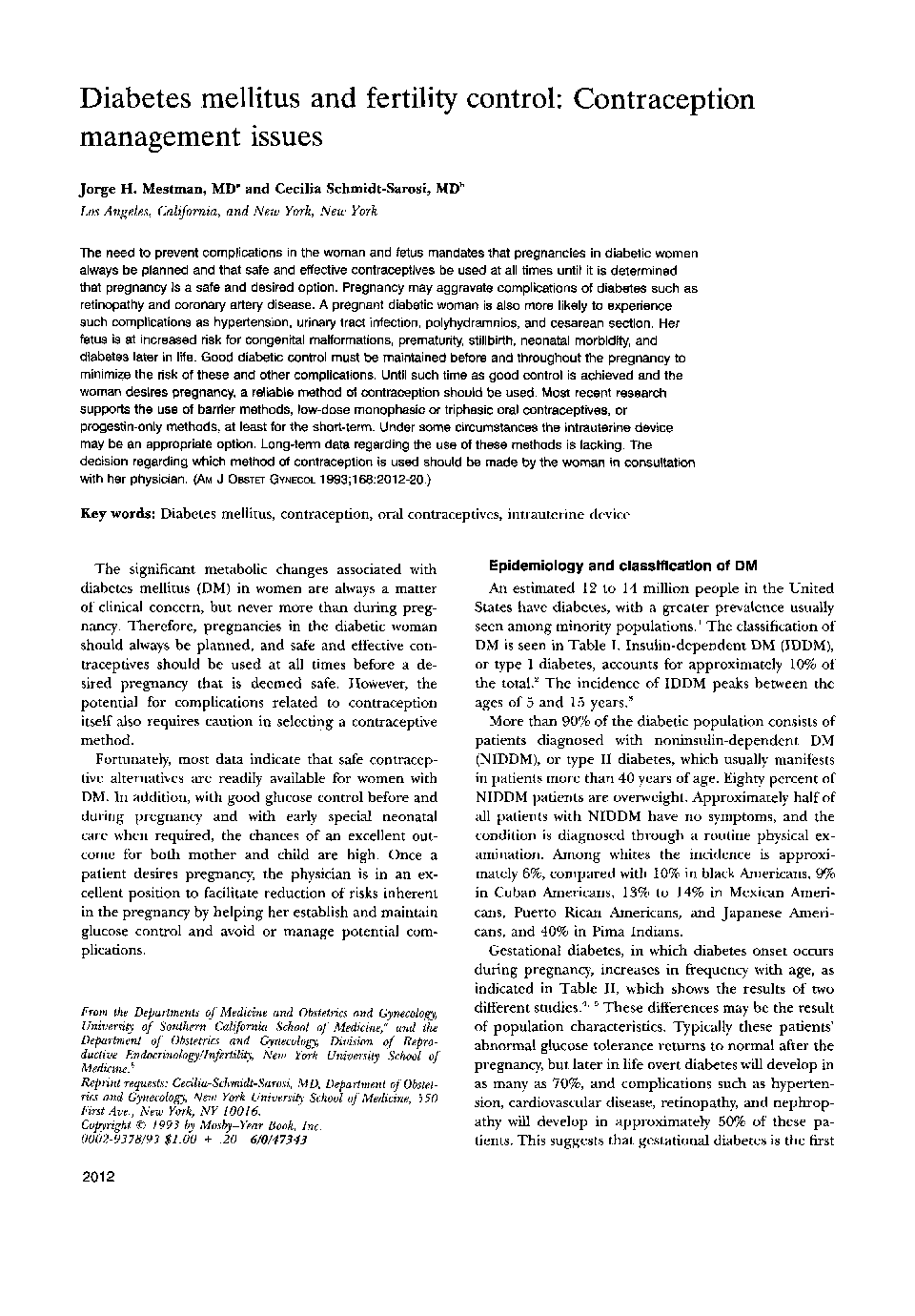| Article ID | Journal | Published Year | Pages | File Type |
|---|---|---|---|---|
| 3443037 | American Journal of Obstetrics and Gynecology | 2012 | 9 Pages |
Abstract
The need to prevent complications in the woman and fetus mandates that pregnancies in diabetic women always be planned and that safe and effective contraceptives be used at all times until it is determined that pregnancy is a safe and desired option. Pregnancy may aggravate complications of diabetes such as retinopathy and coronary artery disease. A pregnant diabetic woman is also more likely to experience such complications as hypertension, urinary tract infection, polyhydramnios, and cesarean section. Her fetus is at increased risk for congenital malformations, prematurity, stillbirth, neonatal morbidity, and diabetes later in life. Good diabetic control must be maintained before and throughout the pregnancy to minimize the risk of these and other complications. Until such time as good control is achieved and the woman desires pregnancy, a reliable method of contraception should be used. Most recent research supports the use of barrier methods, low-dose monophasic or triphasic oral contraceptives, or progestin-only methods, at least for the short-term. Under some circumstances the intrauterine device may be an appropriate option. Long-term data regarding the use of these methods is lacking. The decision regarding which method of contraception is used should be made by the woman in consultation with her physician. (Am J Obstet Gynecol 1993;168:2012-20.)
Related Topics
Health Sciences
Medicine and Dentistry
Medicine and Dentistry (General)
Authors
Jorge H. MD, Cecilia MD,
